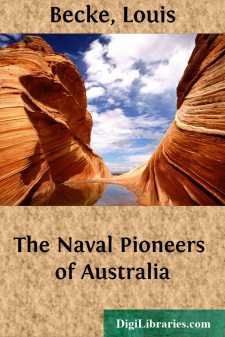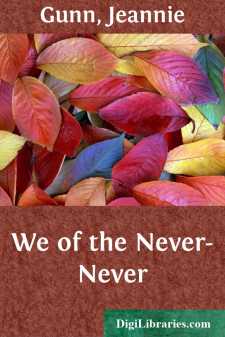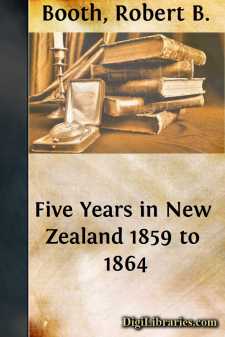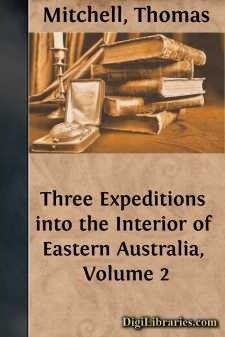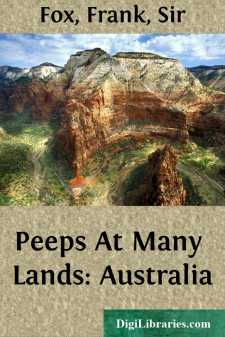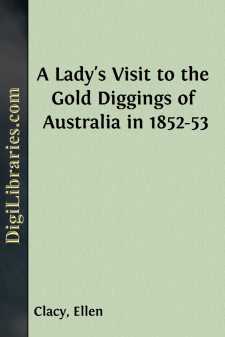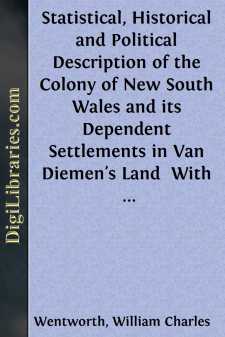Travel
- Africa 29
- Alaska 3
- Asia 46
- Australia & Oceania
- Canada 31
- Caribbean & West Indies 5
- Central America 1
- Europe 151
- General 39
- Maps & Road Atlases 1
- Mexico 10
- Middle East 18
- Polar Regions 7
- Reference 11
- Restaurants 1
- Russia 6
- South America 16
- United States 71
Australia & Oceania Books
Sort by:
by:
Louis Becke
CHAPTER I. INTRODUCTORY—THE EARLIEST AUSTRALIAN VOYAGERS: THE PORTUGUESE, SPANISH, AND DUTCH. Learned geographers have gone back to very remote times, even to the Middle Ages, and, by the aid of old maps, have set up ingenious theories showing that the Australian continent was then known to explorers. Some evidence has been adduced of a French voyage in which the continent was discovered in the youth...
more...
PREFACE. A few words by way of Preface are requisite, in order that the objects of the present Work may be stated to the reader, and that he may also be made acquainted with the sources whence the information here communicated is derived, and from consulting which he may still further inform himself concerning Australia. The aim of the writer of the following pages has been,—while furnishing a...
more...
by:
Jeannie Gunn
CHAPTER I To begin somewhere near the beginning, the Maluka—better known at that time as the new Boss for the Elsey—and I, his "missus," were at Darwin, in the Northern Territory, waiting for the train that was to take us just as far as it could—one hundred and fifty miles—on our way to the Never-Never. It was out of town just then, up-country somewhere, billabonging in true...
more...
by:
Robert B. Booth
CHAPTER I. How I Came to Emigrate. I was one of a family of nine, of which four were sons. My eldest brother was destined for the Church; the second had entered a mercantile house in Liverpool; and I, who was third on the list, it was my father's intention, should be educated for the Royal Engineers, and at the time my story opens I was prosecuting my studies for admission to the Academy at...
more...
by:
Thomas Mitchell
CHAPTER 3.1. Route proposed.Equipment.List of the Men.Agreement with a native guide.Livestock.Corrobory-dance of the natives.Visit to the Limestone caves.Osseous breccia.Mount Granard, first point to be attained.Halt on a dry creek.Break a wheel.Attempt to ascend Marga.Snakes.View from Marga.Reach the Lachlan.Find its channel dry. ROUTE PROPOSED. Towards the end of the year 1835 I was apprised that the...
more...
by:
Frank Fox
CHAPTER I A “Sleeping Beauty” land—The coming of the English—Early explorations—The resourceful Australian. The fairy-story of the Sleeping Beauty might have been thought out by someone having Australia in his mind. She was the Sleeping Beauty among the lands of the earth—a great continent, delicately beautiful in her natural features, wonderfully rich in wealth of soil and of mine, left...
more...
CHAPTER I. THE GULDEN KRONE. COUNT THUN'S CASTLE AND GROUNDS. GLORIOUS SCENERY. THE MARCH RESUMED. SUPERSTITIONS OF THE BOHEMIANS NOT IDOLATRY. STATE OF PROPERTY. OF THE AGRICULTURAL POPULATION. KAMNITZ. THE COW-HERDS. STEIN JENA. HAYDE. We had quitted home not unprepared for the suspicious looks which innkeepers might be expected to cast upon us, strangely equipped as we were, rude of speech, and...
more...
CHAPTER I Early Days In The Colony In the month of September, 1892, Lord Percy Douglas (now Lord Douglas of Hawick) and I, found ourselves steaming into King George's Sound—that magnificent harbour on the south-west coast of Western Australia—building castles in the air, discussing our prospects, and making rapid and vast imaginary fortunes in the gold-mines of that newly-discovered land of...
more...
by:
Ellen Clacy
Chapter I. It may be deemed presumptuous that one of my age and sex should venture to give to the public an account of personal adventures in a land which has so often been descanted upon by other and abler pens; but when I reflect on the many mothers, wives, and sisters in England, whose hearts are ever longing for information respecting the dangers and privations to which their relatives at the...
more...
PART I NEW SOUTH WALES. The colony of New South Wales is situated on the eastern coast of New Holland. This island, which was first discovered by the Dutch in 1616, lies between the 9 degrees and 39 degrees of south latitude, and the 108 degrees and 153 degrees of east longitude; and from its immense size, seems rather to merit the appellation of continent, which many geographers have bestowed on it....
more...


